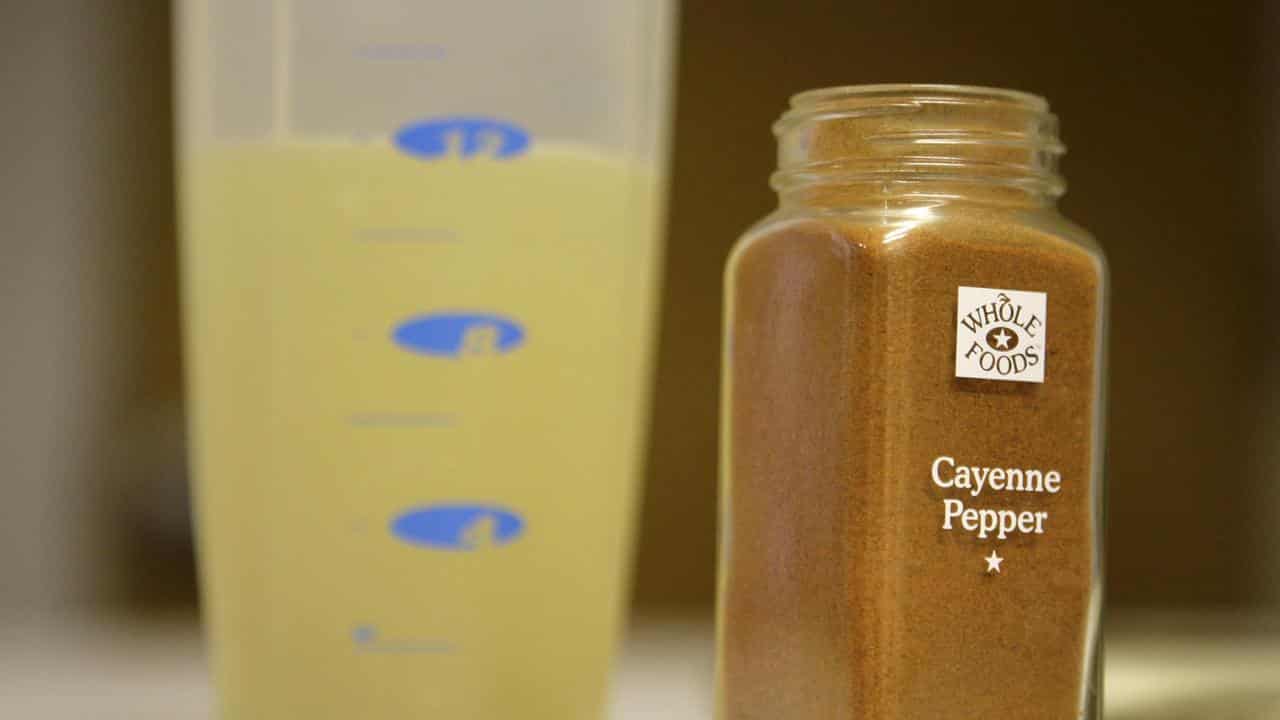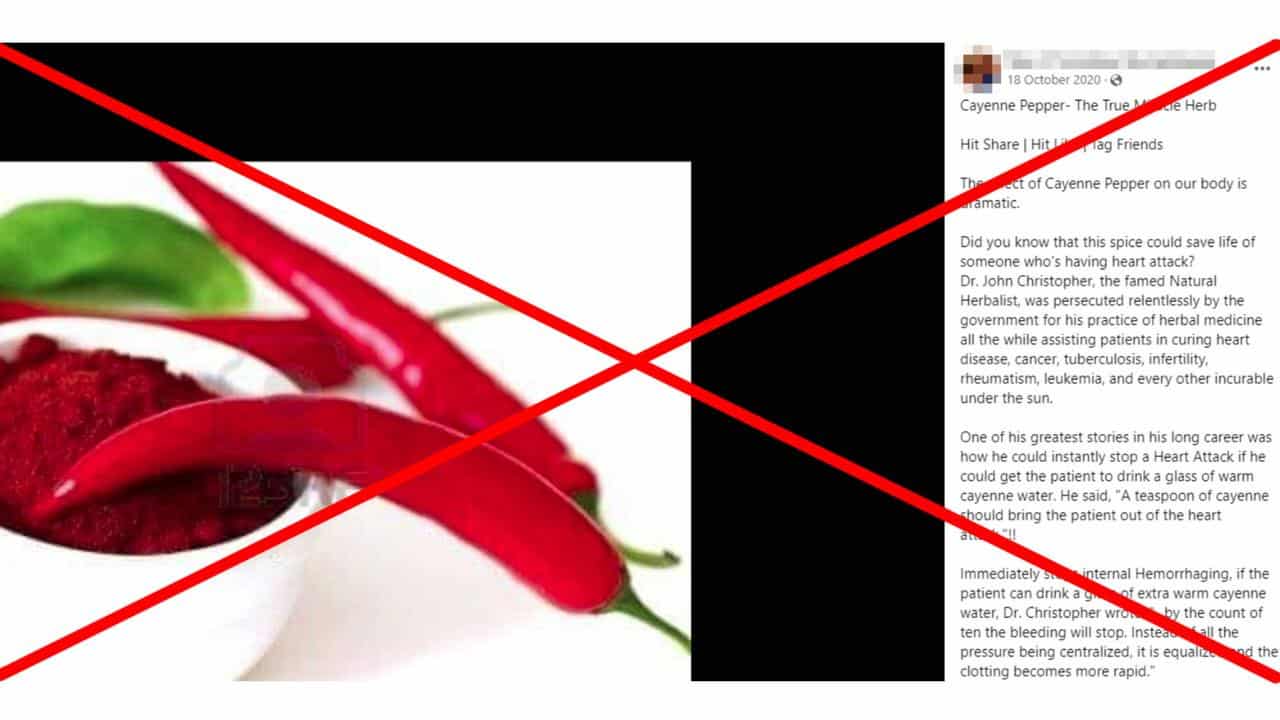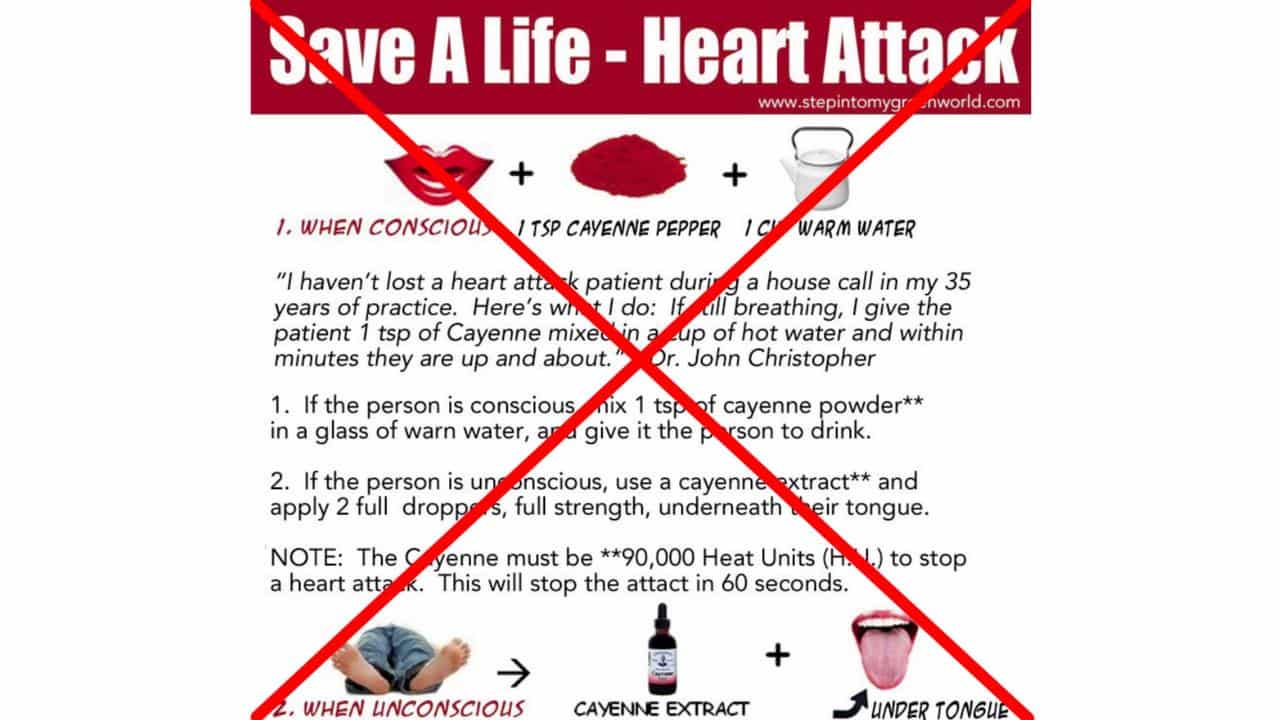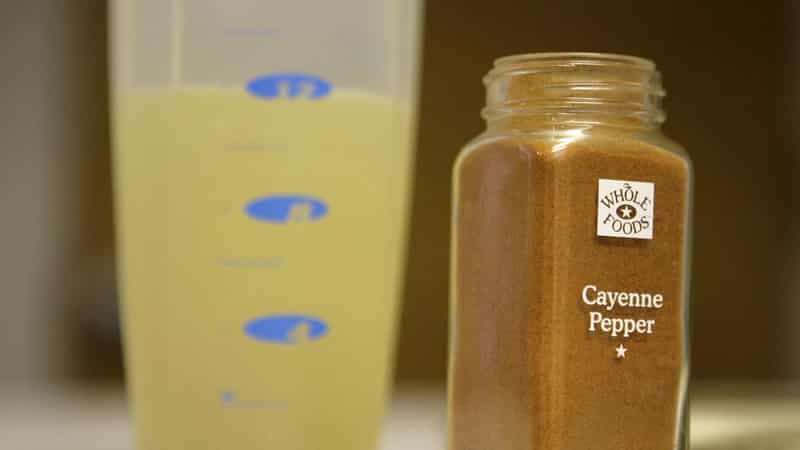
What was claimed
Ingesting cayenne pepper will stop a heart attack.
Our verdict
False. The claim has no medical support and cardiac experts have dismissed it.
Cayenne pepper can liven up a dull dish and has some health benefits, but social media claims it can stop a heart attack are not such a hot tip.
Cardiologists told AAP FactCheck the claim is a myth, while an investigation into its source turns up a banned naturopath and herbalists who offer no medical research to back up their anecdotes.
A Facebook post (archived here) from a New Zealand user calls cayenne pepper the "true miracle herb" and states: "Did you know that this spice could save life of someone who's having heart attack?"
The post is typical of many proliferating on social media. It refers to US herbalist and naturopath John Christopher, who started a school of natural healing in 1953. He died in 1983, but his company selling herbal remedies still exists.

Another post claims Dr Christopher discovered "the most effective formula how to stop a heart attack in 1 minute".
This post also credits Dr Christopher with the discovery and quotes the herbalist: "In 35 years of practice, and working with the people and teaching, I have never on house calls lost one heart attack patient and the reason is, whenever I go in - if they are still breathing - I pour down them a cup of cayenne tea (a teaspoon of cayenne in a cup of hot water, and within minutes they are up and around)."
It also refers to Richard Schulze, a former apprentice of Dr Christopher. One of the earliest Facebook posts to make the claim, from 2007, quotes a 1997 publication Curing With Cayenne, a book of interviews with Dr Schulze in which he claims to have saved people from heart attacks with cayenne pepper.
AAP FactCheck could not find any citations of medical research or independent verification of the claims in the book.
This Facebook post claiming cayenne pepper can stop a heart attack also references Dr Schulze.

Other posts, such as here and here, show videos of Australian naturopath Barbara O'Neill. The full video can be seen on YouTube.
Ms O'Neill says of cayenne pepper: "You can also use it internally if someone has a heart attack," (video mark 7min 45sec).
She then claims she used cayenne pepper to stop a woman's heart attack on a retreat in Melbourne.
In 2019, the NSW Health Care Complaints Commission investigated Ms O'Neill's professional conduct over her non-evidence based claims, including "cancer is a fungus that can be treated with bicarbonate soda".
It found she had limited qualifications in nutrition and dietetics and permanently barred her from providing health services, paid or voluntary.
Isuru Ranasinghe, an associate professor in cardiology at The Prince Charles Hospital and University of Queensland, told AAP FactCheck the cayenne pepper myth persisted despite no evidence to suggest it could stop a heart attack.
"It does have some anti-inflammatory and anti-oxidant properties (and thus probably is healthy)," Dr Ranasinghe said.
"There is also one study that I am aware of that suggests high consumption of chilli peppers is associated with reduced risk of death including cardiovascular death in the long-run … but there is no evidence to suggest peppers are useful to treat or stop a heart attack."

Martin Ugander, a professor of cardiac imaging at the University of Sydney also told AAP FactCheck the claim was fiction.
"It’s bunk. It’s like saying that cinnamon cures cancer," Professor Ugander said.
"It may be that there are preclinical animal studies of the active ingredient capsaicin that show some theoretical benefit, but not that I have seen."
Prof Ugander said there were three case reports in medical literature of cayenne pepper causing heart attacks.
He said he was not aware of any published data supporting the social media claims.
The Verdict
The claim cayenne pepper can stop a heart attack is false.
Cardiology experts told AAP FactCheck the cayenne cure is a persistent myth and there is no scientific evidence to support the claim.
AAP FactCheck sourced the claim to herbalists and naturopaths who provide no medical research to back up their claims.
False – The claim is inaccurate.
AAP FactCheck is an accredited member of the International Fact-Checking Network. To keep up with our latest fact checks, follow us on Facebook, Twitter and Instagram.









